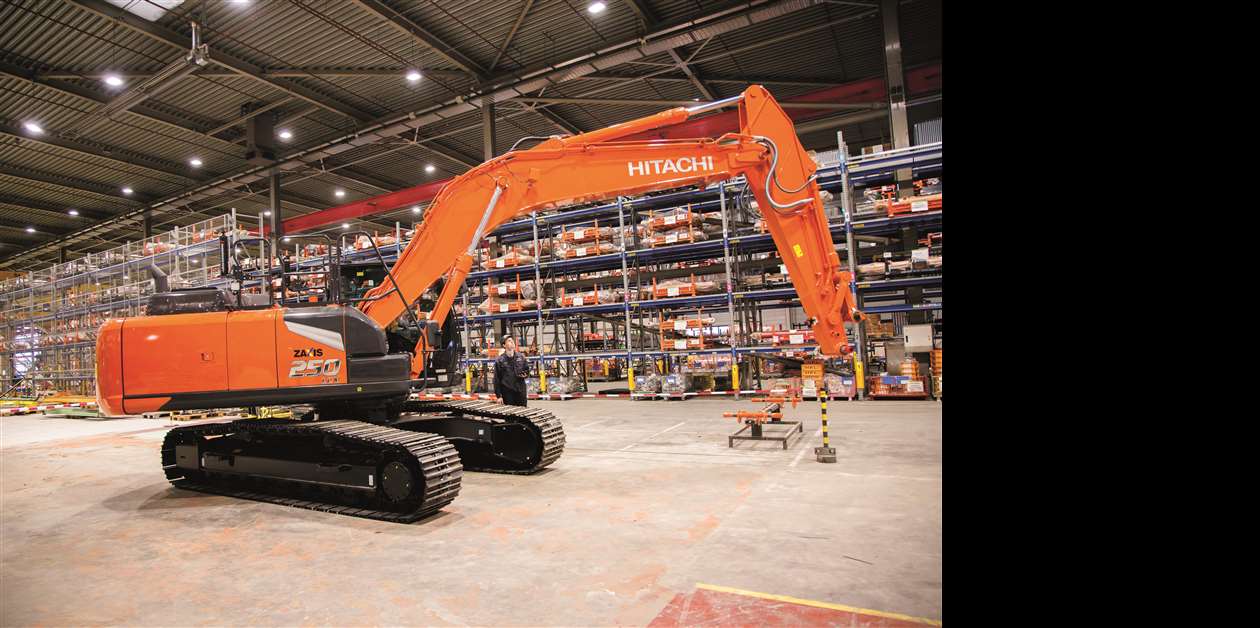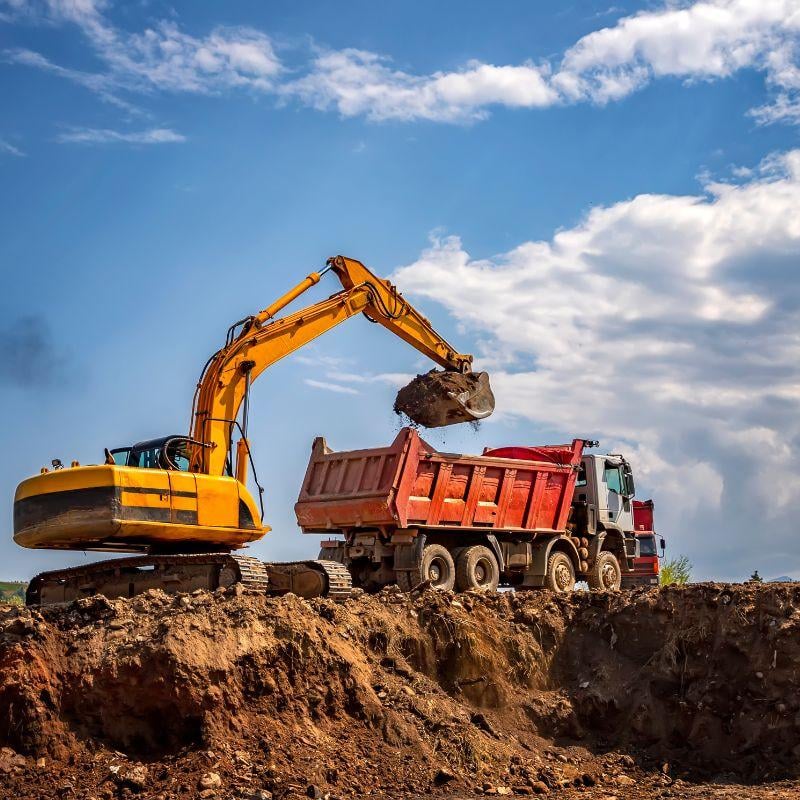Scissor Lift Rental: Cost Effective Vertical Lifting Solutions for Your Work
Scissor Lift Rental: Cost Effective Vertical Lifting Solutions for Your Work
Blog Article
Key Factors To Consider When Choosing Construction Tools Rentals for Numerous Types of Structure Projects
Choosing the suitable building devices services is an important part that can considerably affect the success of any type of building job. Key considerations include a complete evaluation of project needs, budget restraints, and website conditions, all of which play an essential role in determining the appropriate devices for the work.
Task Requirements Evaluation
Effective project demands assessment is vital for making certain the effective implementation of building and construction projects. This procedure involves a thorough evaluation of the certain demands and objectives of the task, which works as the foundation for picking proper building equipment. In order to facilitate accurate decision-making, stakeholders must collect thorough information about the project site, timeline, and range conditions.
Key factors to take into consideration during the analysis include the type of building and construction work, the volume of products to be taken care of, and the spatial restrictions of the task site. Comprehending the job's one-of-a-kind demands allows job managers to determine the essential equipment that will maximize effectiveness and productivity. Additionally, a detailed evaluation assists in establishing the capabilities and restrictions of offered tools choices, making sure that chosen services fulfill efficiency requirements.

Spending Plan and Price Analysis
Budgeting for building and construction tools services is a crucial facet that directly impacts the general financial health of a job. aerial lift rental. An extensive price evaluation need to think about not only the rental charges yet also additional costs connected with running the equipment, such as gas, maintenance, transport, and possible damages waivers
When establishing a budget plan, it is vital to contrast rental costs among numerous providers to recognize the very best worth. This consists of evaluating the duration of the rental period and any prospective discounts for long-term arrangements. Additionally, comprehending the certain demands of the project can aid avoid spending beyond your means on unnecessary equipment.
Furthermore, it is prudent to allocate a contingency spending plan for unexpected conditions that may arise throughout the task, such as equipment failures or prolonged rental durations. This makes certain that the task stays financially viable also if unexpected expenses occur.
Lastly, monitoring expenditures throughout the rental period will certainly give insights right into budget performance, enabling modifications as necessary and cultivating far better decision-making for future tasks - aerial lift rental. By diligently assessing prices, job supervisors can maintain financial control while guaranteeing that the required equipment is readily available to satisfy job demands successfully
Tools Kind and Specs

It is important to analyze the equipment's specifications, including tons capability, power, and reach result, to ensure they meet the task's requirements. In addition, take into consideration the setting in which the tools will be used; aspects such as terrain, area restraints, and website conditions can significantly influence performance.
Furthermore, the age and upkeep history of the rental tools must not be neglected, as more recent models frequently integrate sophisticated technology that boosts functional efficiency and safety and security. Consulting with devices rental experts can provide important understandings into one our website of the most suitable options based on your task's range and intricacy. By very carefully examining tools types and their specifications, task supervisors can guarantee that they choose the right tools essential to achieve optimum lead to their construction ventures.
Rental Conditions
Comprehending the tools type and specifications is only component of the rental process; similarly crucial are the rental terms and problems that regulate the contract. These terms define the expectations and responsibilities of both the occupant and the rental firm, making sure a smooth purchase.
Secret aspects of rental terms consist of the duration of the service, repayment timetables, and any type of involved fees. It is critical to clear up whether the rental duration is based upon daily, regular, or regular monthly prices, in addition to any type of fines for late returns. Additionally, comprehending the repayment framework, including down payments and insurance coverage costs, is vital to stay clear of unanticipated expenses.
Another critical facet is upkeep and fixing duties. The rental contract ought to specify who is responsible for tools upkeep and just how to manage equipment failures during the rental period. Furthermore, it is necessary to review responsibility provisions, specifically relating to damages to the equipment or third-party injuries.
Last but not least, understand the terms bordering tools pickup and return. A clear understanding of these problems can ensure and avoid conflicts that the rental process is effective and reliable, ultimately contributing to the success of your building task.
Provider Track Record and Support

Furthermore, assess the vendor's background out there, including their experience with comparable tasks. Developed suppliers with a tried and tested performance history are more probable to supply the necessary equipment and assistance quickly.
Similarly essential is the level of client solution provided. A responsive support team can make a considerable distinction, especially in urgent circumstances where tools malfunctions may take place. Ensure that the supplier provides available communication channels and is prepared to supply support or options promptly.
Furthermore, ask about maintenance protocols and devices condition. A vendor that prioritizes regular examinations and upkeep is most likely to use well-functioning tools, reducing the danger of delays in your project. Inevitably, a thorough assessment of distributor online reputation and support will assist in a smoother rental process, enhancing total job success.
Conclusion
Finally, selecting ideal construction equipment rentals demands an extensive analysis of task demands, spending plan restraints, and devices specs. Careful analysis of rental conditions, along with a provider's credibility and support, more improves the why not look here decision-making procedure. By thinking about these essential variables, job supervisors can make sure the secure and effective implementation of structure construction equipment leasing companies jobs, ultimately causing successful results and lessened disruptions. A systematic method to equipment selection is crucial for maximizing task efficiency.
Understanding the job's unique needs enables task supervisors to determine the required equipment that will optimize performance and productivity.Cooperation amongst job stakeholders is important throughout this phase, as it promotes a shared understanding of project goals and equipment needs. By carefully assessing job needs, building groups can prevent pricey delays and devices mismatches, ultimately adding to the smooth development of the job and adherence to timelines. The rental arrangement should define that is accountable for tools maintenance and just how to deal with tools failures throughout the rental period.In final thought, picking suitable building tools leasings requires a complete analysis of task demands, spending plan constraints, and devices specifications.
Report this page